We’re sure you’ve heard of Search Engine Optimization, or SEO. But you may still be unsure of what SEO is exactly, why SEO is important for your business, and how to get started implementing it.
Content marketing and having a strategy to help you rank well on search engines are becoming a main component of a successful digital marketing plan.
More and more consumers are searching for information online and favoring useful, informative content over more direct advertising.
Therefore, understanding and implementing SEO is necessary for your business to stay competitive, visible, and relevant.
Continue reading to understand why SEO is important for your business and how you can implement it.
Search Engine Optimization (SEO) is a digital marketing practice that helps make your website visible on search engine results pages (SERP). It is made up of technical, on-page, and off-page components.
It involves adjusting and optimizing your website’s functionality, content, and content promotion in order to rank highly on SERP.
Ultimately, SEO practices are intended to work with search engine algorithms. Things the algorithms look for include a well functioning website, high-quality content including keywords, and high traffic and time on site.
The aspects that the algorithms look for are all very beneficial to your business and will help in converting more sales. Each element goes hand in hand. For example, the more traffic you bring to your site, the higher the SERP ranking, which in turn will drive more traffic!
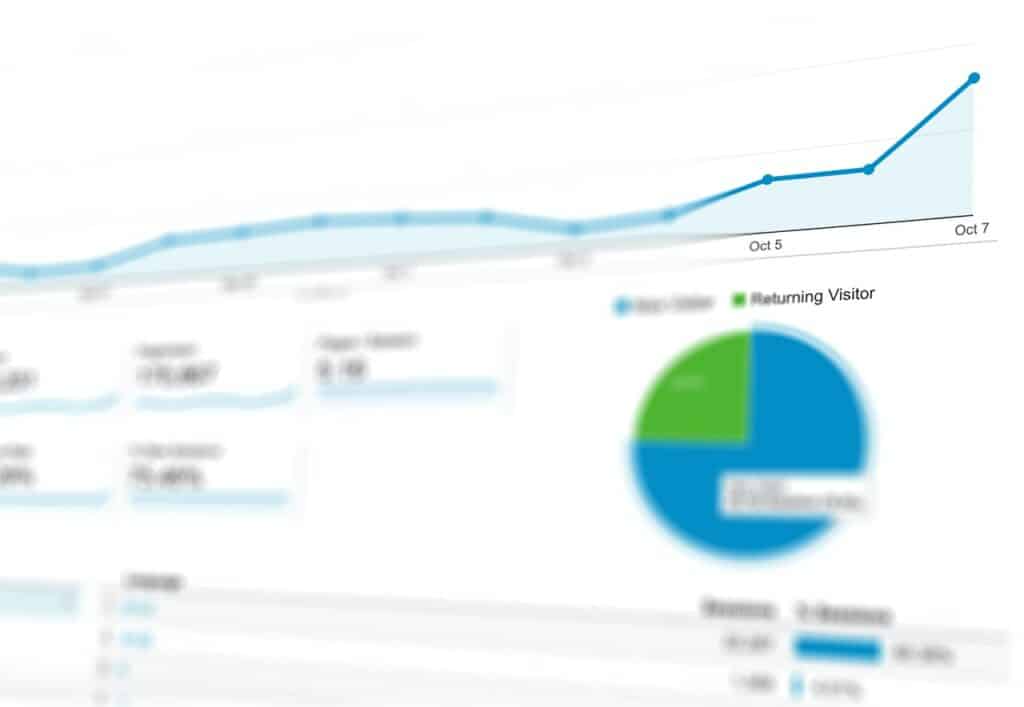
Why SEO Is Important For Your Business
So why exactly is SEO important for your business? The majority of online activity, including product and service research, begins with search engines.
Queries (what is typed into search engines) are highly targeted; the user is specifically looking for information relating to that query.
Therefore it is valuable to provide relevant content if you have a product or service relating to the query.
Most searchers choose the first links on the page (excluding advertised links). In general, searchers will only click links one through five and very few get onto page two of SERP.
Therefore having an SEO strategy that places you high up on page one of SERP is very important. This placement will get you noticed and reward you with the benefits that SEO can bring.
Some of the things that SEO can help improve include:
Visibility
SEO gives your brand the visibility it needs to attract customers. As mentioned, the majority of online activity begins with a search query.
Therefore you want to be as visible as you can (ideally high up on page one) to ensure searchers visit your website.
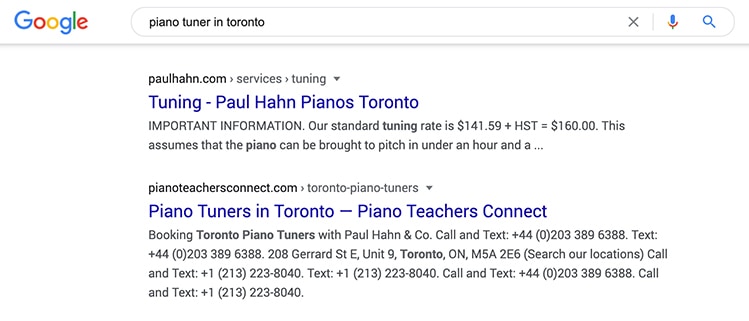
Traffic
Being visible and in a good position on SERP should result in increased website traffic. In fact, organic search is generally the primary source of website traffic. Having a good SEO strategy with lots of high ranking links can bring more traffic than all other marketing efforts.
The traffic you get is also more qualified as in general, searchers are looking for exactly what you have. Even if you have the most optimized ad set, you cannot guarantee that those you reach will want your product. If someone is searching a query however, they have a present need for information and a solution to a problem.
That’s where SEO works. You can provide the info they need plus a solution so a conversion is way more likely.
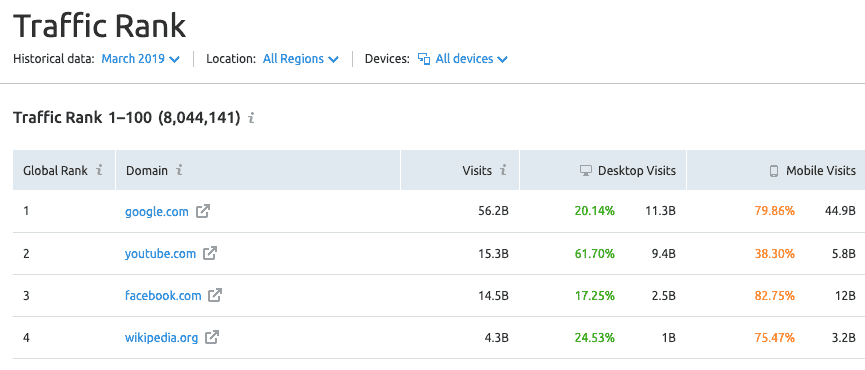
Conversions
Implementing SEO can lead to more conversions. If you’re driving more traffic, that means more leads which should result in more conversions.
If 2% of your site visitors convert, increasing traffic from 10,000 to 50,000 visitors a month, for example, results in 800 more sales!
Even if you have the most optimized ad set, you cannot guarantee that those you reach will want your product.
As useful and informative content is a main element of SEO, this information can convince visitors that they need your product or service. By understanding exactly what you offer and how it will help them, visitors see more value in your offerings making a sale more likely.
Credibility and Trustworthiness
Companies with strong SEO and content strategies also tend to be more trusted. Creating informative and high-quality content builds trust. You’re more likely to trust a company that has blog posts explaining in depth what their offerings do and how they can help you.
That is compared to a website with only landing and product pages with basic information on their products or services. Other SEO components like building backlinks (when others link to pages on your website) and having a well functioning website add to trustworthiness and credibility.
User Experience
Search engine algorithms reward sites with good “UX” or user experience. To be competitive, you’ll need to ensure your website is as user friendly as possible.
You can learn some ways to improve UX in the Technical SEO section below. Ultimately SEO will force you to make your website easy to use which in turn reduces bounce rate and increases time on page. These will then also increase your ranking even more!

Having a good SEO strategy with lots of high ranking links can bring more traffic than all other marketing efforts.
How To Implement SEO
Now you understand why SEO is important and how it can help you, let’s explain how you can implement SEO tactics on and off of your website.
SEO has three main elements: technical SEO, on-page SEO, and off-page SEO.
Technical SEO
Technical SEO refers to optimizing your website so that its pages can be crawled and indexed by search engines. Although this is a more complicated aspect of SEO, it doesn’t need as much maintenance or consistent attention like other SEO components.
A few technical SEO components to look at include:
Identifying Crawl Errors
Google and other search engines index pages (gives them a listing and position on SERP) by crawling them. “Spiders” will quickly scan or “crawl” web pages to understand what they’re about.
A crawl error means that these spiders cannot understand or view the page. They therefore cannot index or rank your page at all. Google Search Console’s “coverage” report will show any crawl errors. Simply set to “All known pages” to see which are “valid”, i.e indexed, and which have errors. Or, you can use SEM software for this. Be sure to fix pages with errors so that they get indexed.
Ensuring Your Website Is Mobile-Friendly
Sites that aren’t optimized for mobile are unlikely to rank well. You can check mobile-friendliness through Google’s Mobile-Friendly Test. Your web developer should be able to optimize your website for mobile if it currently is not.
Fixing Broken Links
To rank well, a website shouldn’t have broken links, also known as dead links or 404’s. These hurt SEO and user experience and can result in a high bounce rate.
Broken links can be internal (your own links) or external (links from other domains that you’ve used). You can use free online tools or paid SEO tools to find broken links. Ensure all broken links are either fixed, removed, or redirected using a 404 redirect.
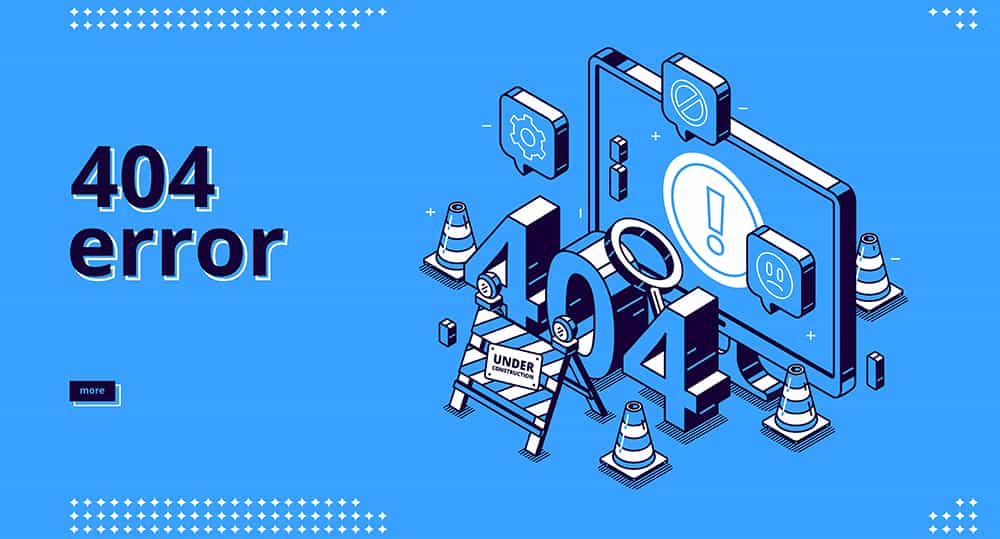
Checking Website Speed
Search engines (and visitors) favor websites that load quickly. If your website’s pages are slow to load it will affect your SEO ranking.
Users are more likely to bounce from slow pages too. They then won’t stay to view the content, so all your work researching keywords and creating content will be wasted.
Your pages should load in under 2 to 3 seconds.
Removing Duplicate Content
Search engines generally don’t like duplicate content which is content that’s either the same word-for-word or is very similar. It’s also confusing to website visitors. Make sure all content you create is unique to your website and the web as a whole and unpublish duplicate content you currently have. Remember to 301 redirect any content you remove to a relevant live web page.
On-Page SEO
On-page SEO refers to the optimizing the actual content that populates your website. The content needs to be created in a way that provides spiders the information they need to crawl and index the page.
You also need to be using keywords related to your offerings that people are searching and that you can compete for.
Some on-page SEO elements include:
Keyword Research
The first step in content creation for SEO is keyword research. This refers to finding out which keywords relate to your products or services and are actively used in search queries. These need to be well researched so that you choose keywords that are relevant to your offerings and are not too competitive.
Unless you have a very high domain authority, the best keywords are those with high search rate but low competition. High search rate and high competition keywords will be dominated by high domain authority sites (think the biggest players in an industry such as BuzzFeed for trending content or The Wall Street Journal for business content.)

You can use a few of these high volume, high competition keywords but don’t focus your whole strategy on these. It’s unlikely that you’ll rank well for those and you’re missing out on an audience searching for less competitive queries.
When choosing keywords, they can be short-tail or long-tail.
Short-Tail Keywords: one or two keywords ex. Dog sitters.
Long-Tail Keywords: more specific phrases of three to six keywords ex. Affordable dog sitters in Houston.
Content Creation
Once your keywords are chosen, you need to actually create the content. This will most likely be web page content like product or service pages and blog posts. You can also apply SEO techniques to video creation and some other mediums.
Ideally, you’ll combine a range of content. For example, a blog post with corresponding video embedded.
Here is what you need to include in your content:
The Keyword Itself
Your content needs your target keyword to be used multiple times. The amount of times it’s used is called keyword density and density will vary based on word count.
There’s no ideal keyword density but including the keyword every 300 – 400 words is a good guideline. Ensure the keyword appears in your first paragraph as well.
Many SEO plugins, such as Yoast, will let you know if you have under or over used your keyword.
Title
Your title must include the keyword, ideally at the beginning or as the whole title. It also needs to be short, under 60 characters.
Word Count And Sentence Structure
Your word count should be at least 500. Search engines prefer long-form content which is generally around 1500 words plus.
Content for SEO needs to be informative and valuable so should include as much information on the topic as possible.
It also needs to have good readability. Use short sentences, mainly under 20 words, and avoid too many superlatives.
Headings
As SEO content needs a high word count, headings are important to readers and search engines.
Use H1, H2, and H3 headings, including H4+ for long or complicated pieces of content.
Headings separate the text and help tell readers and search engines what is discussed in the content.
Image Tags And Other Media
Search engine algorithms prefer multi-media content. The more forms of media you have along with your text, the better. Images are a main part of this. Ensure your content has images and that they have alt tags.
The real purpose of alt tags is to tell blind people what images within text are of or to tell users what images are of if they don’t load. They also help SEO as another way to explain to spiders what your content is about.

The inclusion of other media like video also helps increase your ranking and can increase time spent on the web page and your website as a whole.
The inclusion of other media like video also helps increase your ranking and can increase time spent on the web page and your website as a whole.
Internal Links
These are links within a web page on your domain that leads to another web page on your domain.
Internal links help to:
- Provide additional information for those viewing content
- Increase traffic to other pages
- Develop a website structure and hierarchy
- Pass page authority from one web page to another
- Keep visitors on your site longer
URL
Make sure that your keyword is in your URL. Most websites will automatically generate a URL but you can edit this. If the keyword isn’t included or the URL isn’t concise, edit it.
Meta Description
A meta description is the section of text, usually a sentence or two, you see along with each link on SERP.
This description will not directly affect your ranking but it can help increase CTR. This will help to increase traffic which does affect ranking.
In the meta description sum up your web page content in under 160 characters. Make sure your keyword is included here too!
If you don’t enter a meta description, the first 160 characters of your blog post followed by “…” will appear.
Seeing as it only takes around a minute to write a meta description, it’s definitely worth it.

Duplicate Content and Guest Posts
As mentioned, search engines don’t reward duplicate content and won’t know which piece to rank for the target keyword.
Make sure anything you create is new. Also try not to post others’ content word for word, even if you have permission.
Guest posts are when you either invite someone, usually an expert, to write posts for your website or you provide content to other websites. Guest posts are a great way to build links and generate content.
As mentioned, make sure guest posts aren’t duplicated anywhere else online. Make sure anyone sending you posts knows that they need to be new and unique.
Check the post is unique before uploading. If you’re providing the guest posts, make sure they’re different for each site you work with.
Local SEO
If you operate in a localized market, you will want to optimize your strategy to attract visitors from local searches. A local SEO strategy is similar to that outlined above but you want to ensure your location is included in keywords.
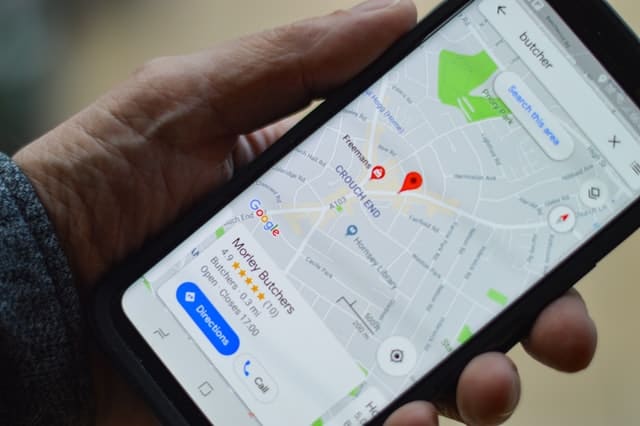
Every time you use a keyword, you should also put your location. Our previous example of “affordable dog sitters in Houston” is a localized long-tail keyword. Instead of trying to rank for “affordable dog sitters” you want to include the specific location you offer the service.
Otherwise, you’re wasting time reaching searchers that cannot use your services. You could also be missing out on searchers looking for your exact service in your exact location.
Off-Page SEO
Off-page SEO refers to all SEO efforts outside of your website. The main components are link building and social media promotions.
Backlinks
Backlinks are when your links are shared by other domains within their content. Number of backlinks is a determining factor in SERP ranking.
Backlinks signify to search engines that others find your content useful and trustworthy enough to share. This in turn increases your rankings as search engines assume others will find the content useful too.
Backlinks pass on authority from the source domain (the one placing the link in their content) to your website, the target domain. The amount of authority passed on depends on the source website’s domain authority. Backlinks from websites with high domain authority have more value than those shared by lower authority sites.
To be effective, links need to be organic. This means they’re shared by choice and not thanks to payment or placement in a link directory. Both of the former can in fact affect rankings negatively.

Backlinks from websites with high domain authority provide the most value.
To get backlinks, consistently create high-quality, valuable content and promote it on all the digital platforms you have. Well formed content will be re-shared without any other incentive.
You can also reach out to websites you would like to share your links. You can simply make them aware of the content or ask if they would like to work with you on guest posts.
If others share your links within social media content, this can also have some positive affects on your SEO. But these link shares have less power than links placed on other domains.
Social Media Promotion
To have a fully-rounded SEO strategy, you’ll need to include social media promotions of your content. Make sure you’re sharing every blog post at least once on all your social media platforms.
You should ideally be sharing multiple times over an extended period, adjusting your messaging each time.
Sharing on social media, increases awareness of content and should result in more page views and website traffic. It also increases the chance of others sharing your content and gaining links.
Add social share bars to your content to increase the chance of it being shared. More shares helps with social proof, which can help with SEO.
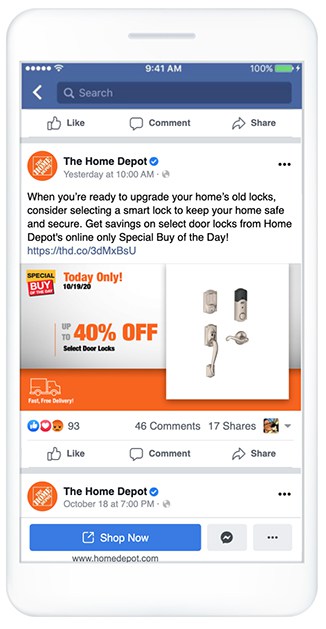
Search Engine Business Listings
An additional component of local off-page SEO is setting up and optimizing search engine business listings. The most important of these is Google My Business but also optimize your Bing Places and Apple Maps listings.
Each of these search engine listings will guide you through set up. It will ask you for your business name, location, business category etc.
Some additional things to do to optimize your listings include:
- Adding additional business categories
- Adding other services you offer
- Uploading photos from your business that are geo-tagged
By using a local SEO strategy, you ensure you are reaching your target market. You also decrease unnecessary competition that occurs when using more general keywords.

Tracking SEO Results
A final component of implementing SEO strategy is tracking your results to understand your customers and improve your efforts.
You should consistently be monitoring your ranking and site traffic to see what works best and what is not working. You can use Google Analytics and/or a paid SEO tool like SEMrush.
By looking at analytics, you can also gain a lot of information about your customers. You can see demographics of those clicking your links, their on-site behavior, and the times they are most active online.
Having a better understanding of your audience will help in future content creation and marketing activities.
You should also stay on top of SEO trends and algorithm changes. Google and other search engines do make updates and changes so make sure you are aware of these and adjust your strategy as needed.
Are you uncertain whether or not you need help? Read our blog article on 8 Signs You Need to Hire a Marketing Agency to help you evaluate your situation.
Should I Hire An SEO Professional Or A Marketing Agency?
It is possible for you and your team to effectively implement SEO especially if you have a strong digital marketing and content creation background.
However, it can be time consuming and you will get best results using an individual or team that have experience with SEO.
By hiring a SEO professional or a marketing agency, you will benefit from their knowledge and gain better results more quickly than if you tried to implement it yourself.
If you think your business can benefit from search engine optimization, contact Brand Hause today!
We can help with technical, on-page, and off-page SEO to increase your search engine ranking and drive qualified leads.

Are you doing your SEO wrong? Learn how the right SEO can improve visibility, build credibility, increase organic traffic, and convert more leads.








40 thoughts on “Why SEO Is Important For Your Business”
Yes, SEO has a plethora of advantages that can’t be counted. And SEO is the only way to get the highest return on investment. When compared to other marketing techniques, SEO is not as expensive. As a result, anyone may employ an SEO firm or individual for their company. Trust me when I say that SEO will make you a lot of money in a short amount of time.
When you run an online business or an eCommerce store, your first goal is to attract people to your website. The more people visit your page, the more new customers are likely to purchase your products and services. Considering that SEO is your most effective way to attract more customers.
On Page SEO is an integral part of digital marketing. It helps increasing website usability as well.
Well informed Blog! It has given impressive information. Waiting for another one. Keep sharing such good content.
Great content
Hi There,
Nice Post! with such informative content.
Thanks for sharing this blog post with us about SEO and its importance.
SEO helps in improving the visibility of your website on search engines. It also helps to increase click-through rates, which leads to more conversions. Brand Hause has guided me by offering their SEO services and helped me improve the rank of my website.
Great post, thank you for sharing this interesting and useful blog about SEO. Thanks for sharing this helpful blog in such a detailed manner.
Thank you for sharing this post. It is very informative. So much information to take in.
Today I visited your site. You are doing an outstanding job regarding Marketing!
Great article on the importance of SEO for business. Thank you!
Thank you for the great post! I’m always happy when people write things that are both informative and entertaining.
I’m always excited to see what you post on your blog because each time is a new adventure! I love reading through all of them!
I love reading your posts! You’re so creative and interesting, it’s a real breath of fresh air.
SEO stands for Search Engine Optimization, which is the practice of increasing the quantity and quality of traffic to your website through organic search engine results.SEO is also important because it can help to improve the user experience on your website. When your website ranks well for relevant keywords, it can help to attract the right kind of visitors who are interested in your products or services.
Great blog. This blog was very informative. Optimizing a website is integral for a business. SEO helps a business to grow their reach to the global level by the help of website. SEO helps a website to rank in the SERP(search engine result page) for a particular keyword. SEO means ranking on SERP without paying as it is organic. SEO can take time and needs patients for a website to rank.
Nice post. Thank you for sharing.
I appreciated the emphasis on providing value to customers through online marketing. It’s not just about promoting your business, it’s about providing helpful information and resources to your target audience.
Before you throw in the towel and declare that ‘SEO is dead’. Think again. Yes, it is harder to build referral traffic from Google and competition is indeed getting tougher now. However, a well-thought search engine optimisation (SEO) is still one of the most scalable and cost-effective investments for online marketing.
Thank you for the Wonderful article! Keep up the Good work! Your insights were truly enlightening. I want to share your company for Search engine optimization services.
Excellent blog. This blog was extremely useful. Website optimization is critical for any business. SEO enables a company to expand its global reach through the use of a website. SEO assists a website in ranking in the SERP (search engine result page) for a specific keyword. Because SEO is organic, it means ranking on SERPs without paying. SEO takes time and requires patience for a website to rank.
Your article was excellent. It was easy to read and very informative. Keep writing such great content, and I would love to see more of your work.
I thoroughly enjoyed reading your blog post. The content was well researched, and your writing style is engaging.
Thank you for sharing your knowledge and insights through your blog post. Your writing is inspiring, and I look forward to reading more of your work.
Yes, You are right, SEO is very much important to online business. Thanks for sharing this important content with us.
I thoroughly enjoyed reading your blog post. The content was well researched, and your writing style is engaging.
Thank you for sharing your knowledge and insights through your blog post. Your writing is inspiring, and I look forward to reading more of your work
I really enjoy reading well-researched write-ups, and this without a doubt is one of the most well done I’ve found recently.
Currently, SEO is very important and no company can exist without it.
Brilliant article! You’ve perfectly highlighted the significance of SEO for businesses. Your comprehensive explanation on how it drives visibility, credibility, and growth is an eye-opener. A convincing read for anyone aiming to boost their online presence.
The practical tips and strategies shared in the article offer valuable guidance for businesses looking to leverage the power of SEO to stay competitive and thrive in the online realm. Thank you for shedding light on this critical aspect of digital marketing!
Hey Brand Hause team! 👋 Just wanted to drop a comment after diving into your article on why SEO is important for businesses. Your insights are a compelling reminder of the pivotal role SEO plays in today’s digital landscape.
The way you outlined the multifaceted benefits of SEO, from increased visibility and traffic to establishing credibility, was spot on. Your article is a comprehensive guide for businesses looking to understand not just the importance but the tangible impacts of a solid SEO strategy.
I appreciate the clarity in your writing, making complex concepts accessible for readers at any level. The emphasis on adapting to changing algorithms and staying ahead in the SEO game resonated with me – a crucial point often overlooked in discussions about SEO importance.
Thanks, Brand Hause, for providing such a valuable resource. Your article is bookmarked for future reference, and I’ll be sharing it with others keen on understanding the undeniable impact of SEO on business success. Keep up the fantastic work!
Delving into ‘Why SEO Is Important For Your Business’ promises to illuminate the pivotal role of search engine optimization. Excited to discover the insights that underscore its significance and impact in ensuring digital success for businesses in the competitive online landscape.
good article this help me a lot
Keep up the great work! Thank you so much for sharing a great posts.
The article provides a clear and concise explanation of why SEO is crucial for businesses. It outlines the benefits of a strong SEO strategy, such as improved visibility, higher web traffic, and a better user experience. By emphasizing the importance of staying ahead of competitors and the long-term value of organic search traffic, the article serves as a valuable guide for businesses looking to enhance their online presence and grow their audience effectively. It’s a useful resource for anyone looking to understand the importance of investing in SEO for sustained business growth.
Fantastic article! SEO is indeed a game-changer for businesses. It drives organic traffic, enhances online visibility, and boosts brand credibility. Thanks for shedding light on its importance!
Very nice blog
Very nice content!
Very nice content